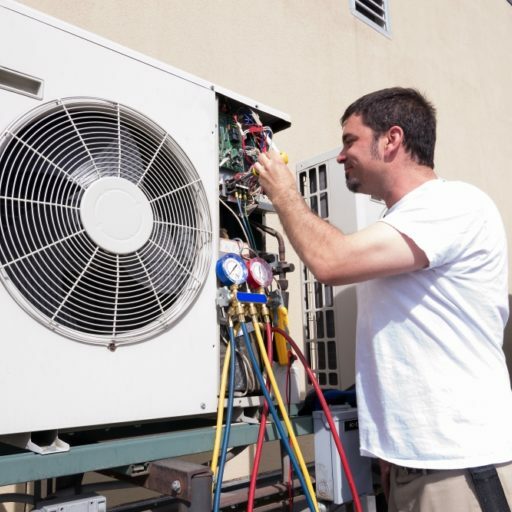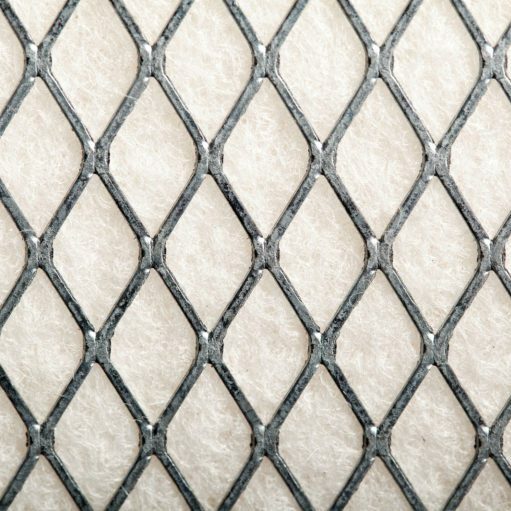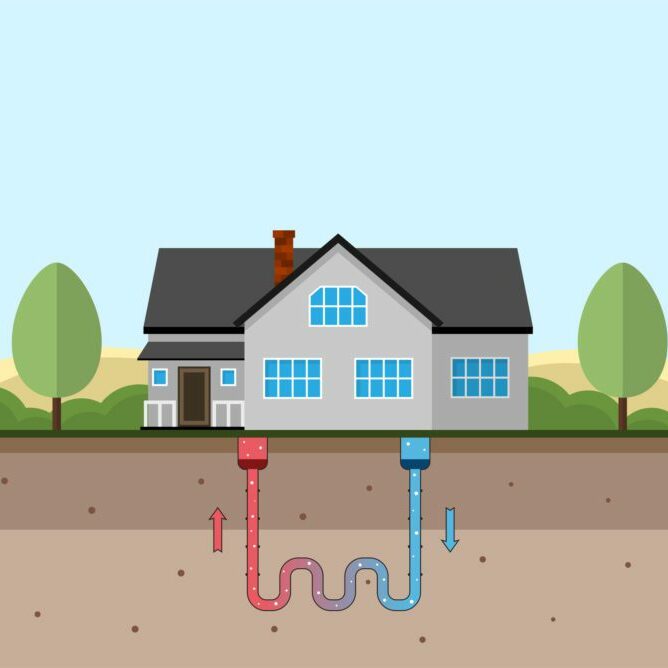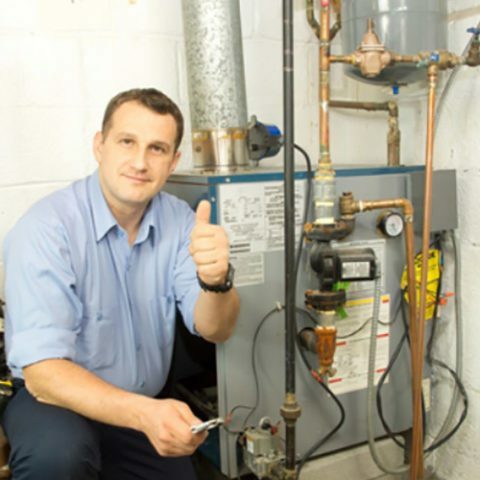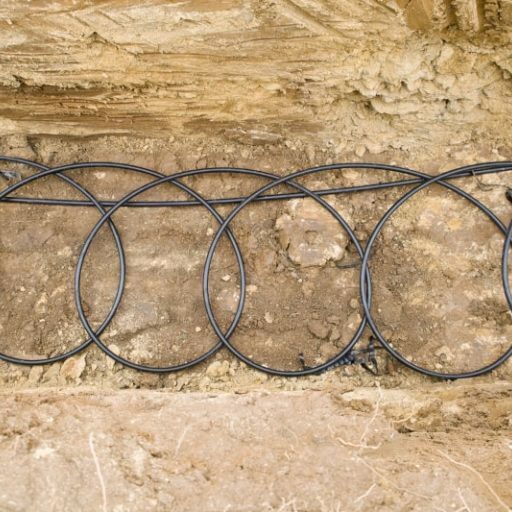Geothermal
Geothermal System Installation and Repair Services for Fairbury, Dwight, and Surrounding Areas
A geothermal heat pump serves as an eco-friendly alternative to traditional forced air heating and cooling systems. Geothermal technology optimizes the heat exchange process, which makes it extraordinarily efficient. A geothermal system can help to significantly reduce your utility costs, but the installing contractor must have experience dealing with the challenges presented by these complex systems.
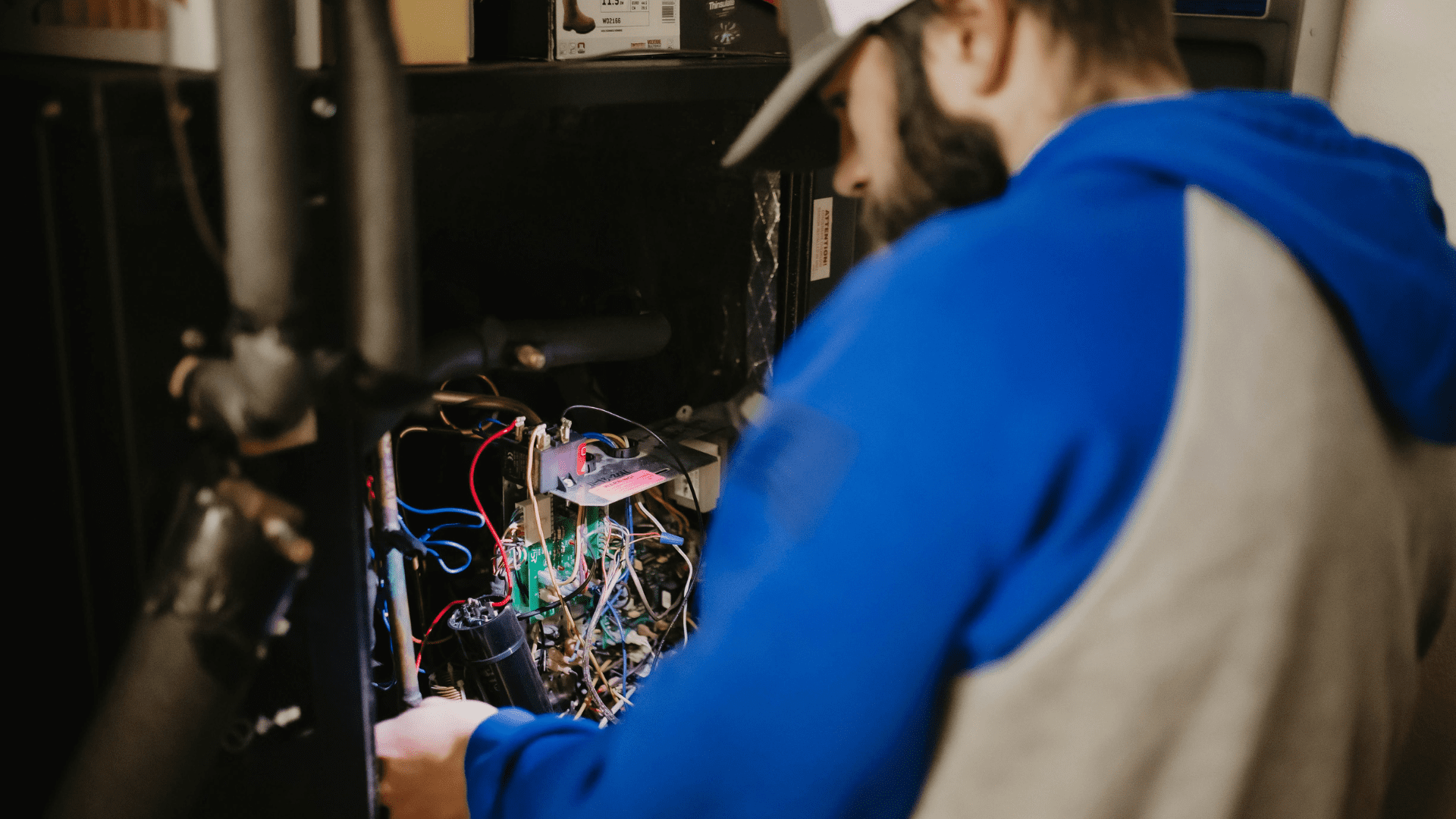
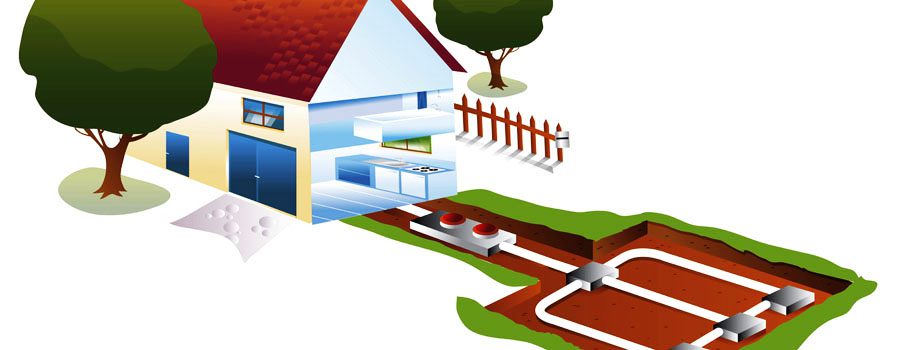
When installed by a professional geothermal contractor, ground source systems are very environmentally friendly due to their low emissions and reduced fuel consumption. In fact, the EPA has identified geothermal as the most energy efficient technology currently available in the HVAC industry.
The Benefits of Geothermal
Compared to forced-air heating and cooling systems, ground source heat pumps provide significant benefits. In the Midwest, outdoor ambient temperatures can vary by over 60 degrees between the average highs of summer and the average lows of winter. However, the ground temperature below the frost line hardly changes at all. Since the ground temperature is so stable, a Geothermal HVAC system can save up to 40 percent when compared to a conventional 13-SEER heat pump. Heat pumps transfer energy instead of creating it by burning fossil fuel, as a result ground source heat pumps can be up to five times more efficient than a furnace rated at 96 AFUE.
Call today! 815-692-4471
24 hour service available
COMPLETE GEOTHERMAL SERVICE
Popejoy Plumbing, Heating, Electric and Geothermal provides complete geothermal services for residents in Pontiac, Morris, Streator, Braidwood, Coal City, Dwight, Fairbury, El Paso, Gibson City, Lexington, Chenoa, Gilman, IL, and the surrounding area. If you would like more information on the benefits of geothermal systems, call one of our comfort specialists today.
The Geothermal Process
Conventional air-to-air heat pumps lose efficiency when they’re exposed to extreme seasonal temperatures. In contrast, a geothermal system uses the Earth as the energy transfer mechanism, which results in a more efficient exchange since the ground temperature remains stable all year round.
Geothermal HVAC equipment incorporates three essential components that are responsible for the superior efficiency of the system:
- The Conduit: The conduit establishes the pathway between the ground and condensing coil, which is the primary mechanism for the energy transfer.
- Condensing Unit: The condenser incorporates the compressor, condensing coil and other components required to complete the refrigeration cycle.
- The Air Distribution Network: The air handler pulls stale air from the interior of the building and returns conditioned air through the supply ductwork.
Geothermal heat pumps are similar to traditional air-to-air models, but the process is differentiated by the loop-style heat exchanger. Like a traditional HVAC system, geothermal can be configured to provide air conditioning, forced- air heating and radiant heating.
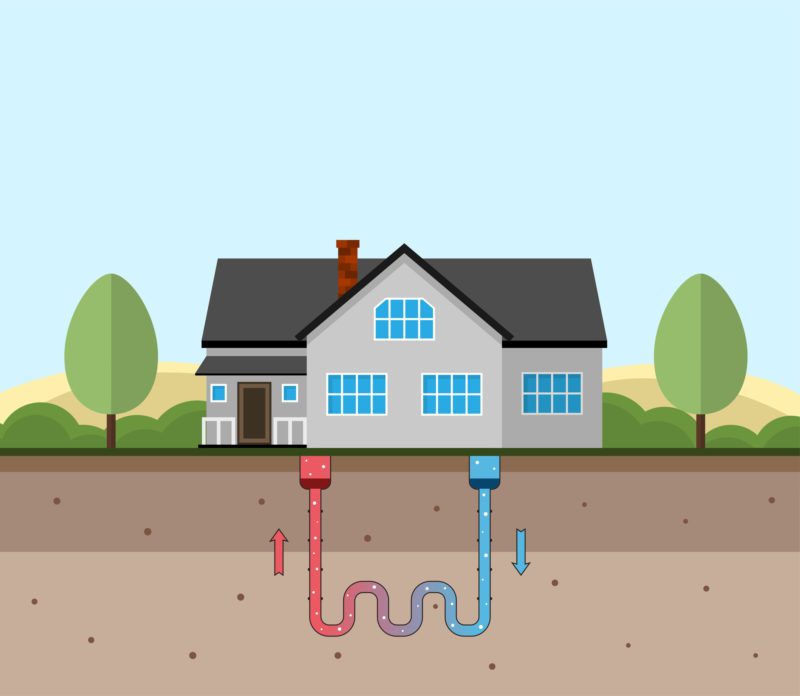
The specially designed heat exchanger is connected to the earth by a unique polyethylene piping system. Primary geothermal configurations include open and closed loop systems. Closed loop systems are the most popular and use an antifreeze solution that is circulated through a piping network. An open loop system must be connected to a well or other permanent water source. Over time, closed loop systems have become more popular due convenience, flexibility and reliability.

